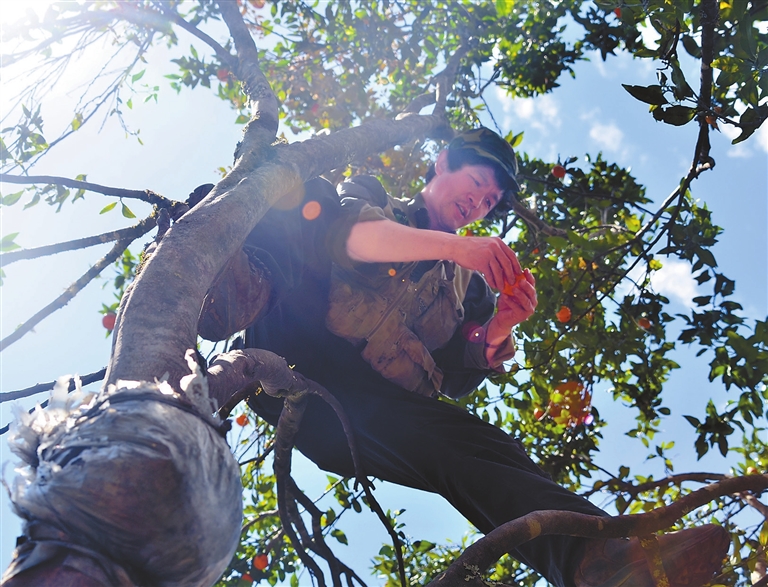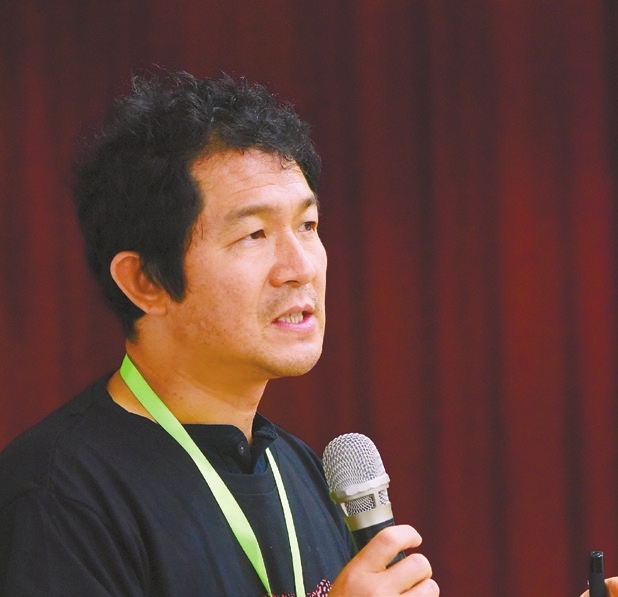

AN unlikely influencer on social media platform Douyin, Guo Guangpu can be a bit eccentric outside the classroom. The associate professor from the School of Life Sciences and Technology, Tongji University shatters the stereotypical image of a stuffy pedagogue, especially when he can be seen sniffing bird droppings, or even pretending to eat them for dramatic effect. “There is less water and more uric acid in the bird poop, to prevent water loss,” he explains. “To keep its body light, the bird has no bladder to store urine, which also explains the constituents of the droppings.” People can find explanations on a wide range of natural phenomena in Guo’s educational videos on the popular short video sharing platform Douyin, including why pandas prefer bamboo to meat, the differences between Tibetan foxes and their lowland relatives, as well as an introduction to canine species other than dogs. To date, Guo has made more than 100 short pop science videos about animals and plants, as well as urban ecology systems, based on interesting field research. The effort won him more than 14,000 followers since March. His followers get to know such subtropical plants as mimosa and litchi in Dongguan, Guangdong Province, the Asiatic toad and Tianmu odorous frog of Tianmu Mountain in Zhejiang Province, and rare fruits in various shapes and sizes in Yunnan Province. “Science videos are not easy to do; you have to be professional while ensuring that the presentation is inviting and easy to understand, so that the public readily embraces them,” Guo says. He read several doctoral theses to get an accurate answer to how much bamboo a giant panda consumes a day, before delivering the explanation in plain words. In a video, he had a gecko bite his finger to prove that the reptile doesn’t chew, and then showed how this creature’s teeth are only for keeping food from falling out of its mouth. His efforts have appealed to those longing to learn online. Some videos received as many as 17,000 likes. “Without leaving home, I can appreciate the vast land and abundant natural resources across our country,” says Ren Jiaxi, one of Guo’s Douyin followers. Guo says that he doesn’t encourage learning by repetition and doing exam-oriented exercises. He wants to teach people about the real world around them so that they feel at home in a natural environment. “This is the way to encourage problem solving and creativity,” he says. Last year, he set up a Practical Ecology course, in which he took students into the wilderness and museums to observe and study animals. Having taught for decades, Guo launched his online project for the same reasons as aimed by his Practical Ecology course. He noticed that some young people today are afraid of nature. “Many scream at the sight of small insects,” he says, adding that it perplexed him. Guo has been at ease in nature since he was a child. A university teacher, Guo has mainly taught zoology and ecology, while outside the classroom, he has been preaching what he teaches and encouraging people to get in touch with nature. Every year, Guo spends a considerable amount of time outdoors. He has conducted field research on the Bengal tiger, forest musk deer, takin and Asian black bear in Medog County of Tibet Autonomous Region and observed the Oriental scops owl at the raptor rescue center in Dali Bai Autonomous Prefecture, Yunnan Province. While on field research in Tianmu Mountain, Zhejiang Province, he stunned his company by grabbing a poisonous Stejneger’s pit viper by the neck in one split-second movement. Although life can be simple and crude, with peril lurking behind every tree on an exploration trip, Guo finds great satisfaction in the wilderness and thinks it an irreplaceable part of his life. “Nature is my first love, and it’s my love of life too,” Guo says. (China Daily) | 
